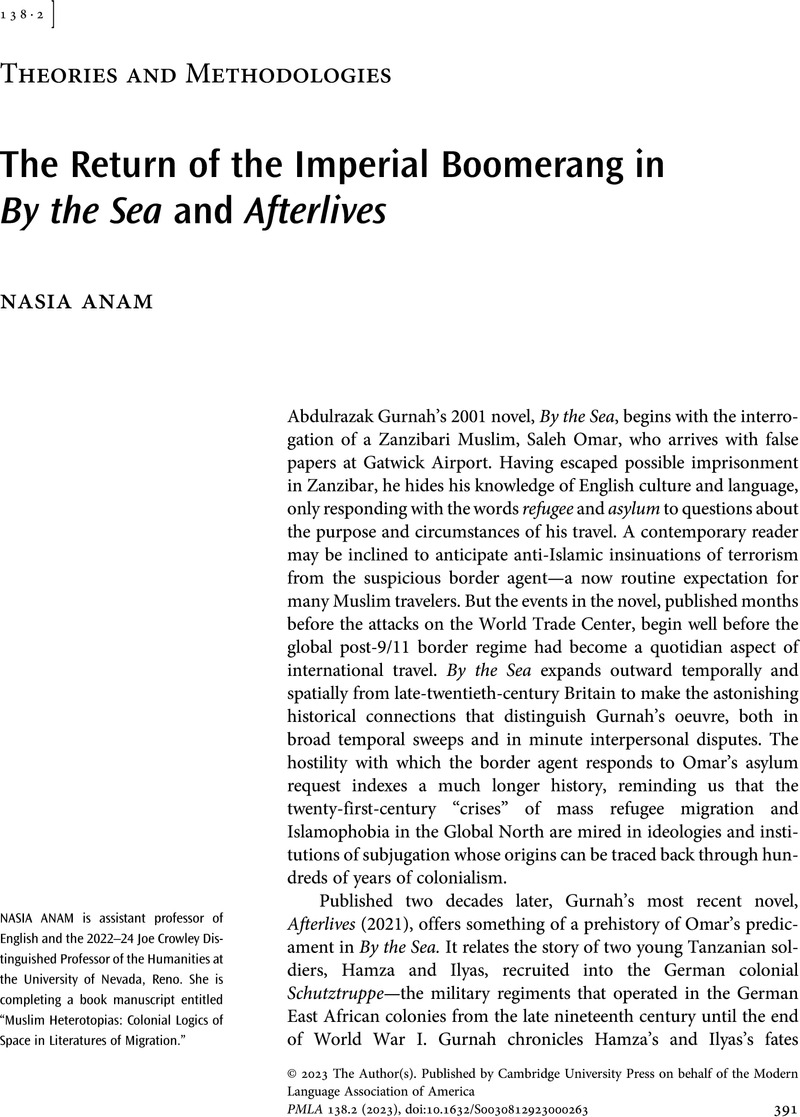Crossref Citations
This article has been cited by the following publications. This list is generated based on data provided by Crossref.
Musila, Grace A.
2024.
East and Central Africa 2023.
Literature, Critique, and Empire Today,
Vol. 59,
Issue. 4,
p.
534.



